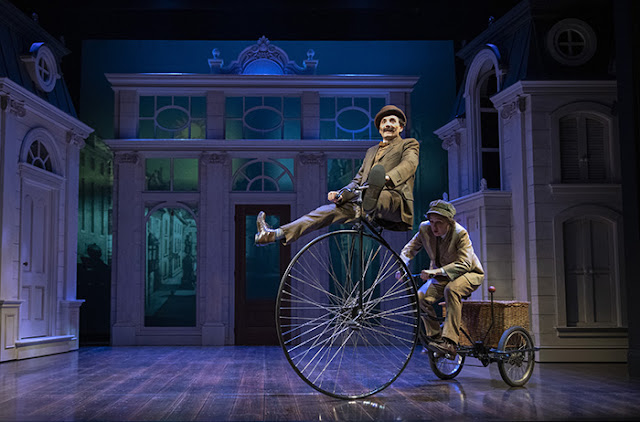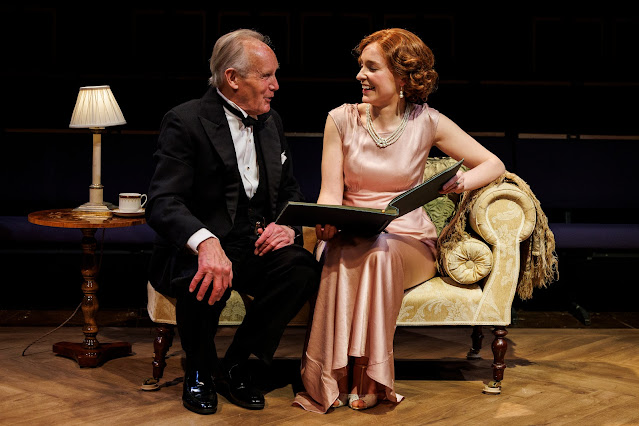 |
| Andrew Scott and Indira Varma in Present Laughter. (Photo: Manuel Harlan) |
The relentless updating of classic material continues apace with the Old Vic revival of Noël Coward’s 1942 Present Laughter (recently broadcast in the NTLive series) and Kate Hamill’s adaptation of Jane Austen’s Pride and Prejudice, currently being performed at New Haven’s Long Wharf Theatre. Present Laughter stars Andrew Scott as Garry Essendine, the narcissistic stage star Coward wrote as self-parody and starred in himself in the West End. The director, Matthew Warchus, has queered the material by making Garry explicitly bisexual and gender-switching the roles of his backer, Hugo, and his wife Joanna, still an outsider to Garry’s inner circle, who almost ruins everything by first carrying on an affair with Garry’s producer, Morris, and then seducing Garry himself. In this version, Hugo has become Helen (Suzie Toase) and Joanna is now Joe (Enzo Cilenti), so his dalliances with both Morris (Abdul Salis) and Garry are same-sex. Plus, as Garry reveals in the last act, Helen is sleeping with another woman.


















